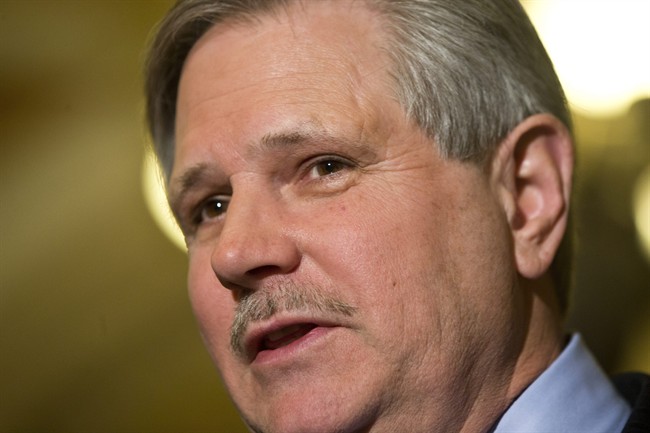WASHINGTON – The United States Congress approved a bill Wednesday to construct the privately funded Canadian Keystone XL oil pipeline project, setting up a confrontation with President Barack Obama, who has threatened to veto the measure.

The House voted 270-152 to send the bill to the president, endorsing changes made by the Senate that stated climate change was real and not a hoax, and oilsands should no longer be exempt from a tax used to cleanup oil spills. Only one Republican voted against the measure.
But neither chamber has enough support to overcome a veto, and supporters were already strategizing on how to secure the pipeline’s approval using other legislative means.
“The evidence is in. The case ought to be closed,” said Rep. Fred Upton (R-Mich.), chairman of the House Energy and Commerce Committee.
For Republicans, the bill’s passage capped weeks of debate on a top priority after they took control of Congress last month. Hours before the vote, they prodded Democrats who did not take their side.
READ MORE: Keystone XL is good for you, too, Prentice tells audience in U.S.
Democrats, meanwhile, called the effort a waste of time but said the provisions on global warming and oils spills marked progress for Republicans on those issues.
Rep. Alcee Hastings (D-Fla.) said the bill was another example of Republicans prioritizing legislation to demonstrate a message, regardless of its chances of becoming law. The vote Wednesday marked the 11th attempt by Republicans to advance the pipeline.
- Ontario First Nation declares state of emergency amid skyrocketing benzene levels
- Singh mulls TikTok return as U.S. nears potential ban over security fears
- More financial institutes are offering crypto-services, survey shows
- Possible TikTok ban in U.S. looms after Biden signs bill, setting up legal fight
“The last few years have been like a hamster on a wheel – spinning and spinning and not getting anywhere,” said Hastings, who at one point held up a toy that looked like the rodent.
First proposed in 2008, the pipeline has come to symbolize the differences between the parties on energy and environmental matters, and it is likely to be the first of many skirmishes with the White House.
READ MORE: Prentice in U.S.: Obama veto won’t kill Keystone XL
Obama has rejected previous attempts to force his hand on the Keystone XL pipeline, saying he wanted the review process to play out and to ensure the pipeline wouldn’t exacerbate global warming. The pipeline was first proposed in 2008.
While the State Department’s January 2014 analysis said Canada’s oilsands would be developed regardless of whether the pipeline was approved – meaning the pipeline itself would not increase greenhouse gas emissions – the Environmental Protection Agency has said that analysis needs to be revisited because of lower oil prices.
TransCanada Corp. (TSX:TRP), meanwhile, has written to the U.S. State Department to dispute the EPA’s latest criticism.
The company takes issue with the EPA report, which said the recent drop in oil prices will increase Keystone’s contribution to greenhouse gases and climate change.
READ MORE: U.S. Senate passes Keystone XL pipeline bill, defying White House
Among other things, TransCanada says the EPA’s conclusions aren’t supported by the State Department’s analysis or by actual market prices and production rates since the company first applied for approval in 2008.
Senate Majority Mitch McConnell of Kentucky urged Obama to sign the bill on Wednesday, saying it was “common sense.”
“So Americans are urging President Obama not to interfere in the review process for political reasons any longer,” McConnell said. “Americans are urging the president to finally heed scientific conclusions his own State Department already reached.”
Sen. John Hoeven of North Dakota, the chief Republican sponsor of the bill in the Senate, also called on the president to approve the project. The pipeline would carry oil from Canadian oilsands to Nebraska, where it would connect with existing pipelines to refineries along the Texas Gulf Coast.
The pipeline would also carry some of the oil from North Dakota’s oil boom
“The president needs to work with Congress in a bipartisan way and approve the Keystone XL pipeline project for the American people,” Hoeven said.
—With files from The Canadian Press



Comments